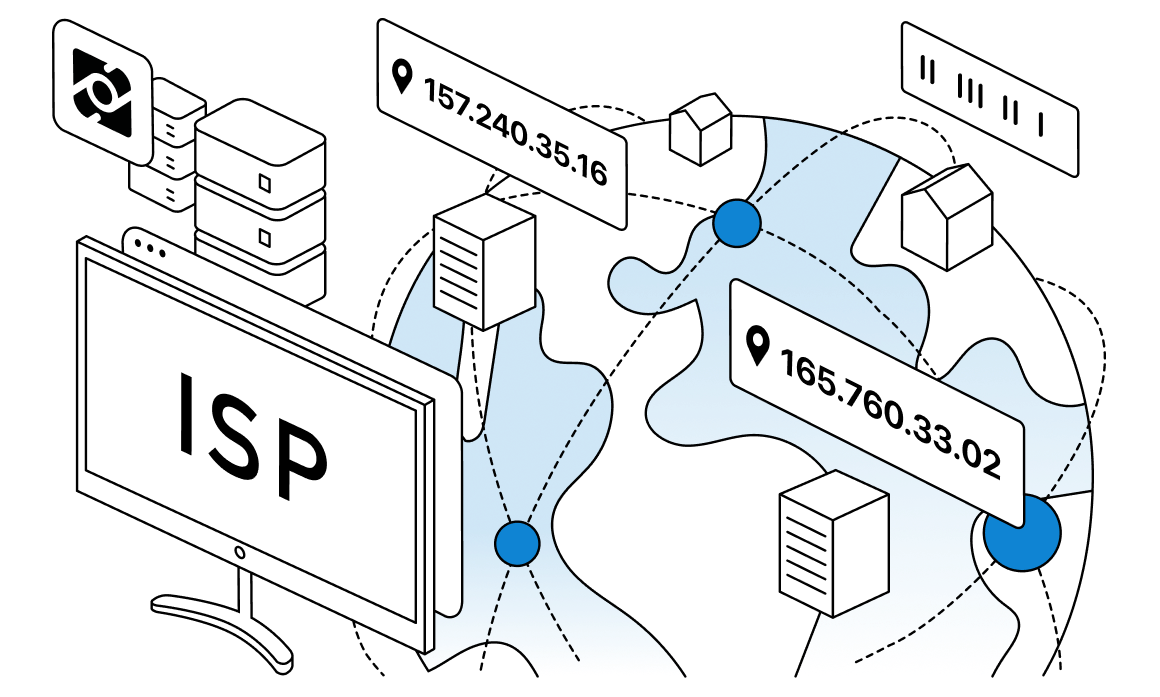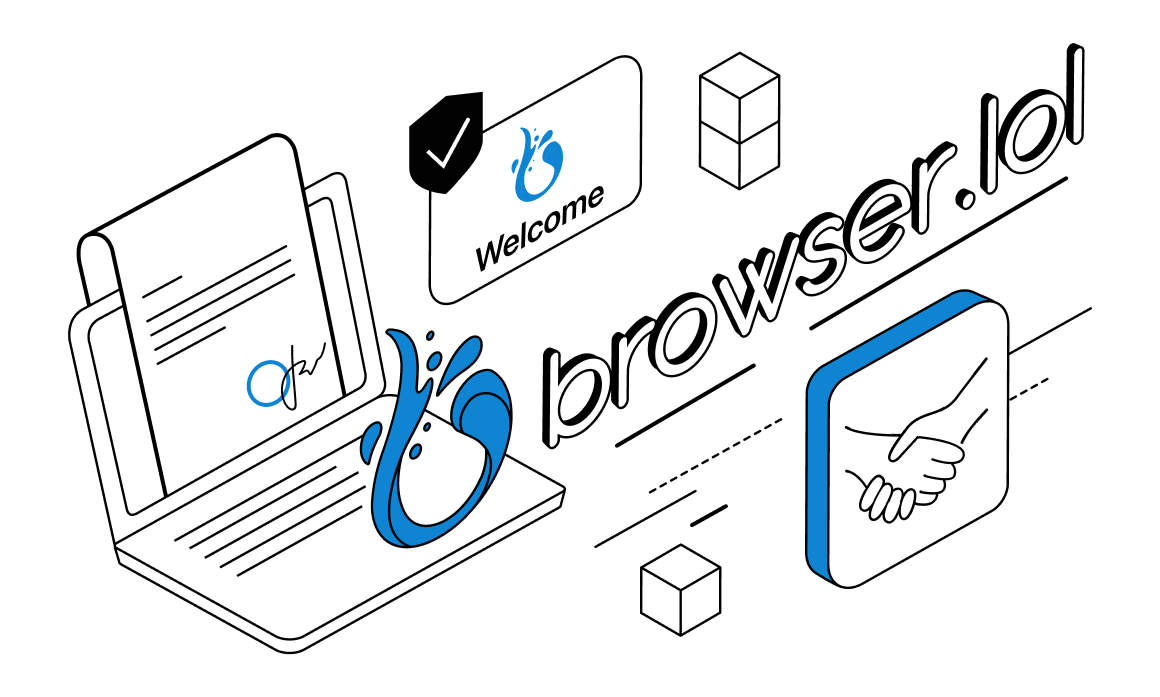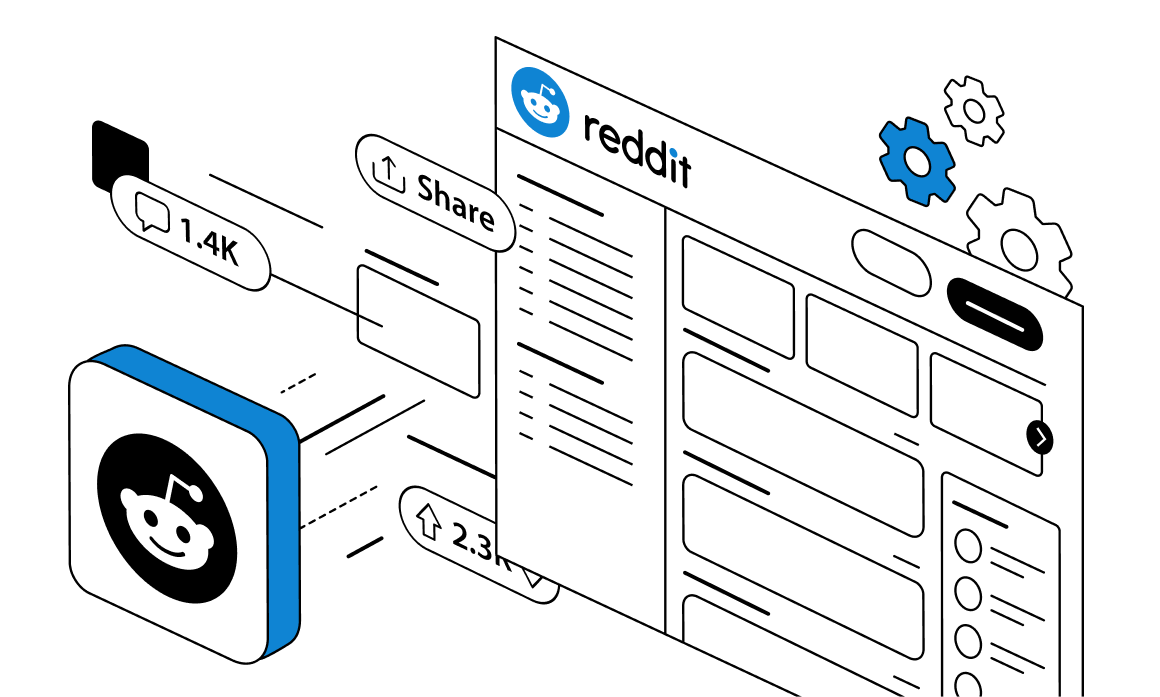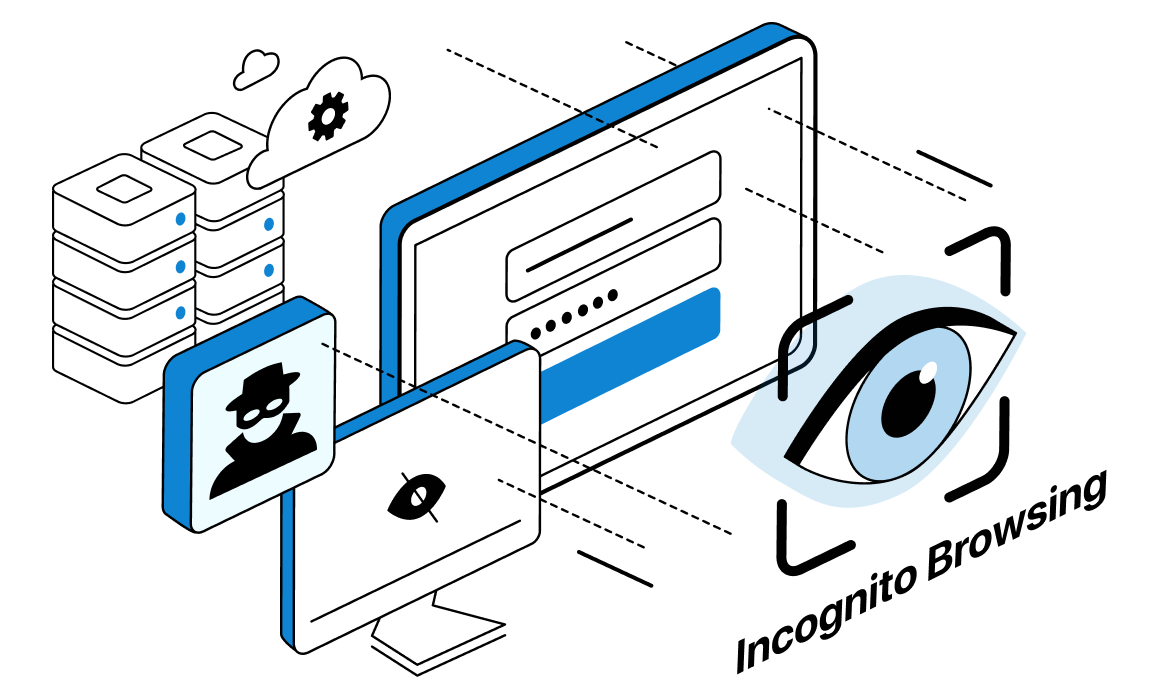What data is sent to ISP using a proxy? This is a question that many don’t often ponder. Today, there are numerous proxy services available. However, among the options available, two proxy types stand out: residential and datacenter proxies. These proxies offer distinct features, but when combined, they create ISP proxies. Continue reading to learn more about ISP proxies below.
What is an ISP proxies?
ISP proxies act as intermediaries that assign new IP addresses for each online request, ensuring a secure and anonymous connection. Unlike proxies for personal devices, ISP proxies use servers for hosting and have a pool of available IP addresses that users can customize.
What makes ISP proxies unique from others is their use of cloud servers. This makes them fast, secure, and reliable. They provide the anonymity of residential IPs and the speed of datacenter proxies by hosting IPs from ISPs on datacenter servers. This creates a powerful proxy solution for users.
How ISP proxies work
ISP proxies work by assigning a new IP address for each online request, ensuring a secure connection by hiding your location and original IP address. This new IP allows you to visit multiple websites without raising suspicion. While datacenter IPs are fast and affordable, they are easily detected and blocked. If your project requires raw speed, stable sessions, or large-scale automation, you may benefit from adding high-performance datacenter IPs to your setup — buy datacenter proxy. These proxies deliver fast response times and consistent connectivity, making them ideal for scraping, SEO monitoring, and other high-volume workloads. To overcome this, ISP proxy services combine the advantages of residential and datacenter proxies, offering a secure pool of residential IPs on a datacenter server. This provides users with safe and anonymous IPs for both residential and commercial use.
Key Benefits of ISP Proxies
1. Anonymity
ISP provides you with a fake IP address, replacing your original one. The IPs assigned mimic legitimate ones to the websites you visit. This legitimacy becomes a key advantage, enabling to bypass anti-scraping and security measures dependent on IP identification. Consequently, this ensures that your true identity remains hidden on the internet, keeping your online activities private and secure.
2. Great Uptime
With a remarkable 99.99% uptime, ISP proxies ensure maximum performance, high-speed internet connections, and robust security features such as web analytics, filtering, auditing, firewall, and end-to-end encryption.
3. Bandwidth
Offering nearly unlimited bandwidth, ISP proxies grant users control over individual IP addresses, making them ideal for large-scale online tasks such as web scraping. Unlike residential proxies, ISP proxies do not follow a traffic-based pricing model.
4. Rotation Options
ISP proxies offer unprecedented IP rotation options, facilitating tasks like sneaker copping, social media management, market research, web scraping, and SEO monitoring. Access to backconnect servers and sticky IPs adds flexibility to users’ needs.
5. Speed
Leveraging a vast IP pool, ISP proxies combine the speed of datacenter IPs with the legitimacy and anonymity of residential proxies. This unique combination enhances the reliability and efficiency of online activities like web scraping.
Use Cases of ISP Proxies
1. Web Scraping: ISP proxies excel in web scraping by offering speed and near-invisibility. Their capability to handle large-scale scraping operations makes them indispensable for extracting substantial amounts of data promptly.
2. Social Media Monitoring: ISP proxies play a crucial role in social media monitoring, preventing suspicions and potential blocks. By tricking social network algorithms regarding IP addresses, users can efficiently manage multiple accounts without triggering flags.
3. SEO Monitoring: ISP proxies help bypass location and cookie-related issues, thus ensuring accurate SEO monitoring. By anonymizing connections and impersonating users in various global locations, they enhance the reliability of search engine results.
4. Ad Verification: Marketers can employ ISP proxies for ad verification, swiftly scanning millions of websites to validate advertising companies’ promises. This ensures that displayed ads meet campaign standards, appear on the right websites, and reach the intended audience without encountering IP-related issues.
Conclusion Proxy servers are important if you want to stay anonymous and have a fast internet connection. This article has highlighted how ISP proxies lead the way in achieving these objectives, combining the strengths of residential and datacenter proxies. Therefore, for online privacy and speed, ISP proxies prove to be a reliable tool that provides users with anonymity and efficiency.
Frequently Asked Questions
Please read our Documentation if you have questions that are not listed below.
-
What data is sent to ISP using a proxy
The data sent to an ISP when using include the request for web content and the corresponding response. A proxy will act as an intermediary for requests and receive the web page data on your behalf.
-
Can ISPs detect the use of proxies and monitor the transmitted data
Yes, ISPs can detect the use of proxies. However, it can't see anything else as the data transmitted remains encrypted and protected. Therefore, it is important to choose a reputable proxy service that prioritizes user privacy.
-
Do ISPs retain any user-specific information when using a proxy?
No, ISPs do not retain individual user-specific information when a proxy is used. The proxy only intercepts and forwards data between your device and the web server.
Top 5 posts










Browser.lol is a handy solution for a variety of modern online problems. The main browser function lets you operate it without requiring any installation or file access on your system. You don't need to download Browser.lol, because this software will work with all of your already-installed browsers. This way, you're able to access a virtual browser environment and open any link with no concern about getting exposed to viruses or malware (enhanced by a static ip proxy).